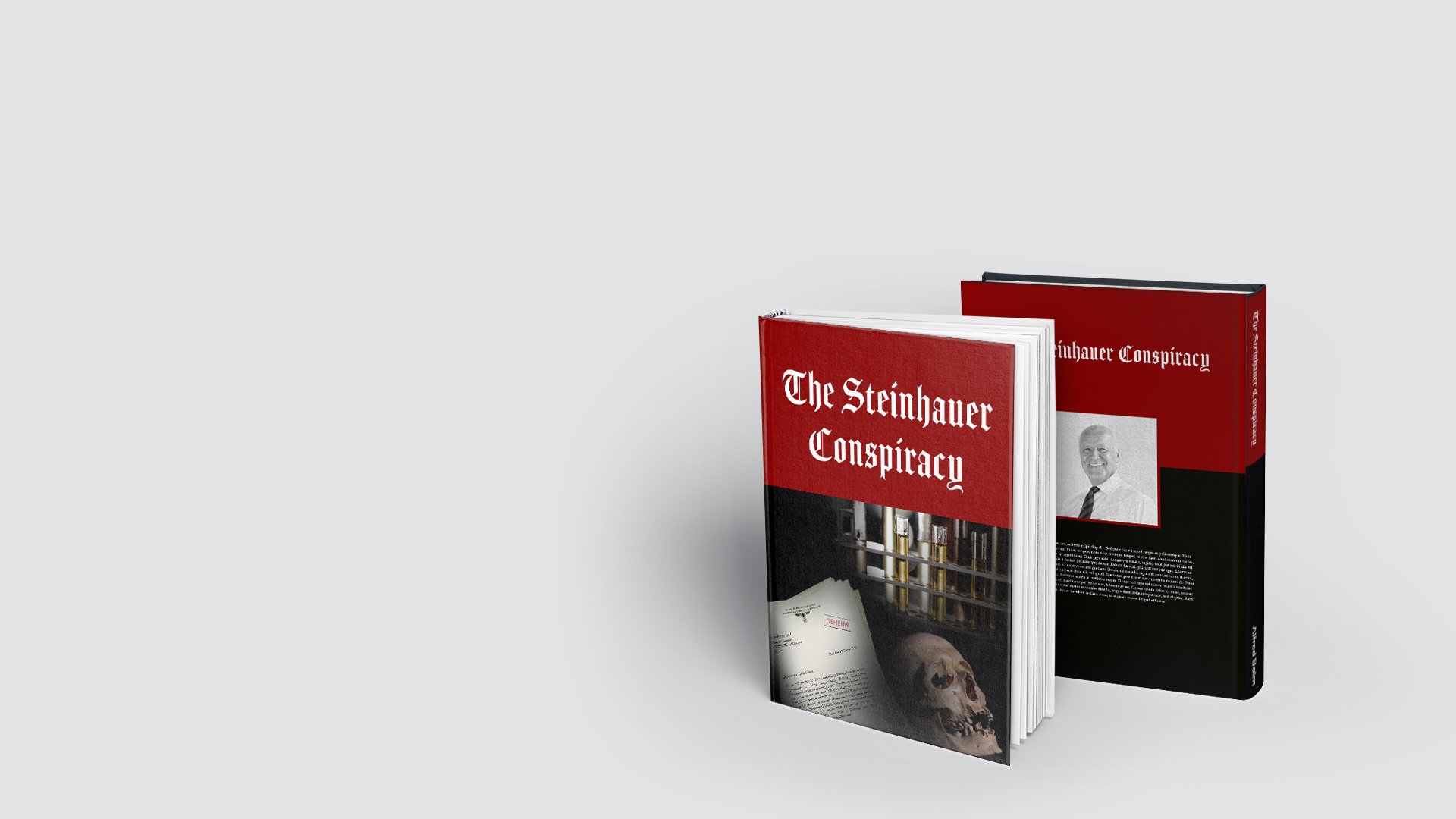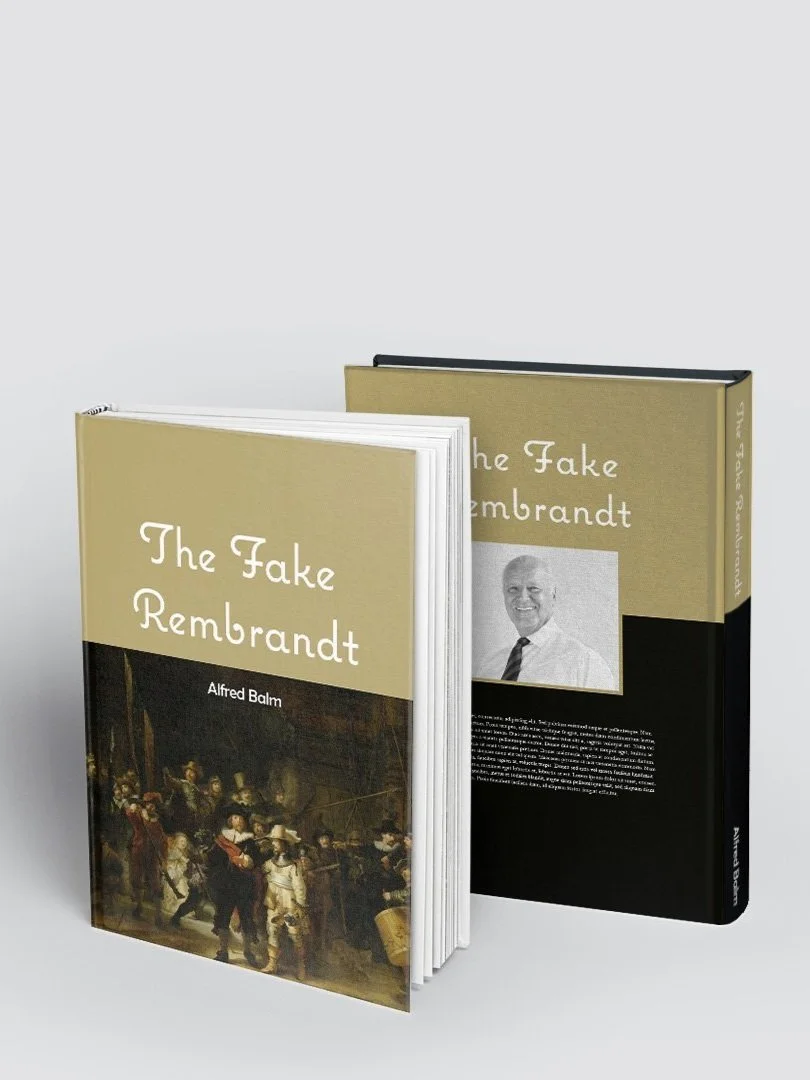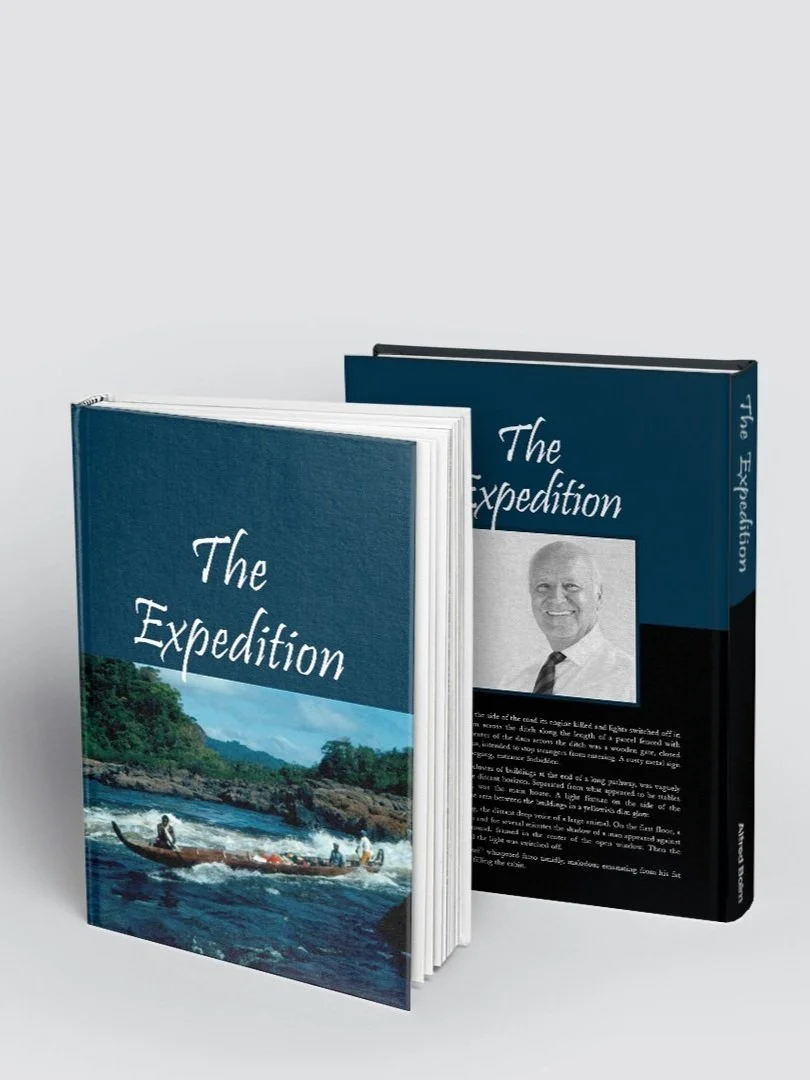
The Steinhauer
Conspiracy
Preview
Checkpoint Charlie felt eerie.
Like the ships in a river lock, it sluiced cars mainly from free Berlin to the North, and now and then a single Trabant, or Volga in the opposite direction. Uniformed guards on both sides kept their guns at the ready and pointed binoculars at each other. On this side of the locks were American soldiers in familiar battle-ready uniforms. On the other side, German guards, even in their different outfits and Russian helmets; frightfully similar to the ones that Bob and Suzan had hoped they’d never see again. They were stopped by an American sergeant in his early twenties, who asked for IDs, their reason for wanting to leave the Western sector and whether the other side was aware of their arrival. Bob showed his press card and explained that they had received permission to visit the DDR and that he intended to write an article about life over there.
The sergeant shot him a sardonic glance, knowing very well what life was like in the DDR; he didn’t believe Bob's explanation but saw no reason to stop them from entering the sluice. He marked the received information, the IDs and license plate number down on his writing pad, then signalled that they could continue. The sluice resembled an elongated animal cache or a giant rattrap, Suzan thought.
It started to rain, a drizzle at first from a low hanging solid grey sky, turning quickly into a steady vertical downpour. With the American guards behind them and the DDR posts ahead, the heavy drops ruffling on the roof and the vision-limiting rain quickly forming puddles, they felt like extras in an Alfred Hitchcock horror movie.
The barrier in front of them stayed down.
Two armed guards, in German Wehrmacht uniforms like resurrected ghosts from a dark past, with only different insignia and Soviet helmets, yet no less frightening in appearance, stopped them.
"Papiere." The soldier shooting the question at Maurice held a tight-fitting leather gloved hand in his direction, slightly bending towards the driver, his booted legs close together. While the trio handed over their papers, he didn’t even look at them. Instead, he ran his gaze through the interior of the car. "Aussteigen, step out of the car.”
However, memories of the years when those German Hitler vassals called the shots in Holland, using similar language, made Bob's blood boil. He turned to the soviet puppet in fluent and haughty German,
"Hören Sie mal, listen, we are here on an official visit, authorized by the highest authorities. We handed you our papers when instructed, and we did so in a friendly manner. There was supposed to be somebody to meet us here. There is no ‘Aussteigen,’ until that person appears, verstehen Sie? Do you understand?”
The soldier did; the bluff worked immediately. He stiffened, then walked to the sentries building, his uniform drenched. Maybe seven minutes later, he reappeared, now in the company of an officer and a tall man in a long leather coat and a black fedora hat.
They approached the car.
"Herr Maurice Steinhauer?"
"Yes, that's me", answered Maurice.
"Herzlich willkommen Herr Steinhauer, wir erwarteten Sie. Welcome Mr Steinhauer we were expecting you. Please follow us."
A black Volga limousine on the other side of the gate started its engine. The men walked towards the waiting car then, indicating that they should follow, opened the doors and took a seat in the back. The gate opened, and Maurice drove through it. Finally, they were in the DDR.
The Volga drove through a lifeless street. On either side, the facades of buildings and apartments were still showing damage from World War II, many of which had not been inhabited or maintained since the partition of Berlin. The entrances were closed with planks, the windows were covered with boards, and large patches of plaster were missing. Bullet and grenade holes disfigured the facades just as pocks on an ugly face.
At the end of the street, a corner house painted a dull grey was evidently occupied. A Soviet GAZ-69, the Russian equivalent of a military jeep, was parked in front of it, next to a Trabant. Above the entrance, a black, red and yellow flag with the emblem of East Germany in its centre stood out in all its soaked wetness as the only colourful element on the entire dreary block.
The Volga stopped in front of the building.
The Fedora hat stepped out of the car, indicating to the visitors to follow him into the building.
The entrance and the corridor were just a shade lighter grey than the frontage outside. A uniformed sentry opened the right wing of double doors. When Suzan, Bob and Maurice entered, a short, bald-headed man reminiscent of a trapped weasel rose up from behind his desk; a uniformed Russian officer stood next to him.
“Please sit down, madam, gentlemen. Which one of you is Maurice Steinhauer?”
Maurice stepped forward while the weasel remained behind his desk on an elevated chair.
“Das bin Ich”, that’s me.
“Ah, Herr Steinhauer, please tell me what made it so important for you and your colleagues to visit the Harz Mountains?”
The man’s hands rested on a file in front of him that no doubt contained all the documents and all the information related to their visit.
“Well, as no doubt you are informed Mr…eh...Zimmerman,” Maurice began, swiftly glancing at the name on the wooden sign on the desk facing visitors, “I am an investigative journalist. During my studies in The Netherlands, I came across a file describing atrocities supposedly committed by allied forces during the war. These actions were blatantly against the Geneva convention. There have been numerous publications covering the violations by the Nazis and later by the victorious Russian troops defeating the enemy. However, we seldom read about brutalities from the other side. My grandfather, Professor Steinhauer, told me about these even before I read the file.”
The Russian officer remained silent and kept his gaze fixed on Maurice as if to read his real intentions from his facial expressions.
“Ah, yes, I remember I read about that, Mr Steinhauer, and no doubt there is truth to the matter. Now tell me, what do you hope to accomplish?”




